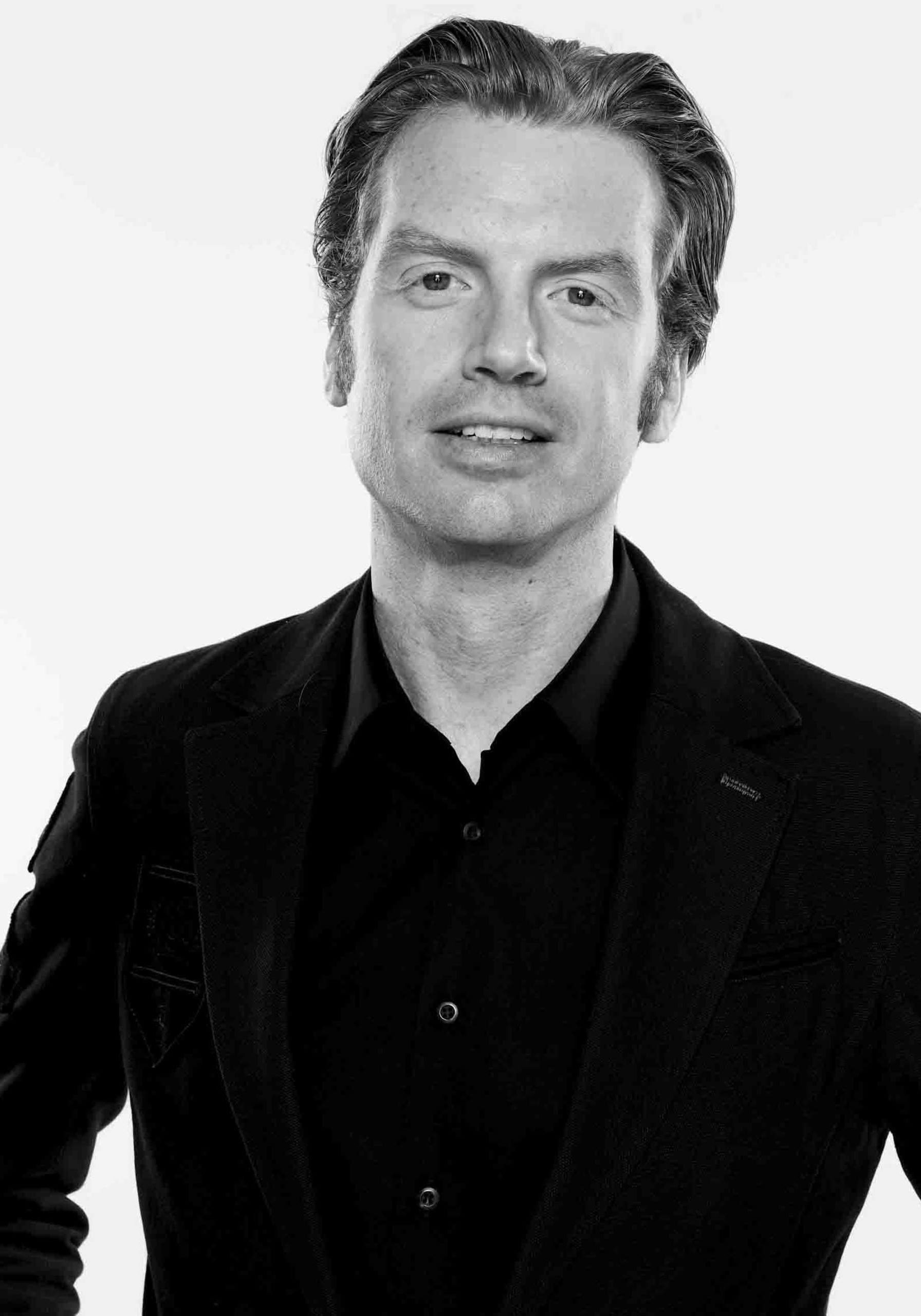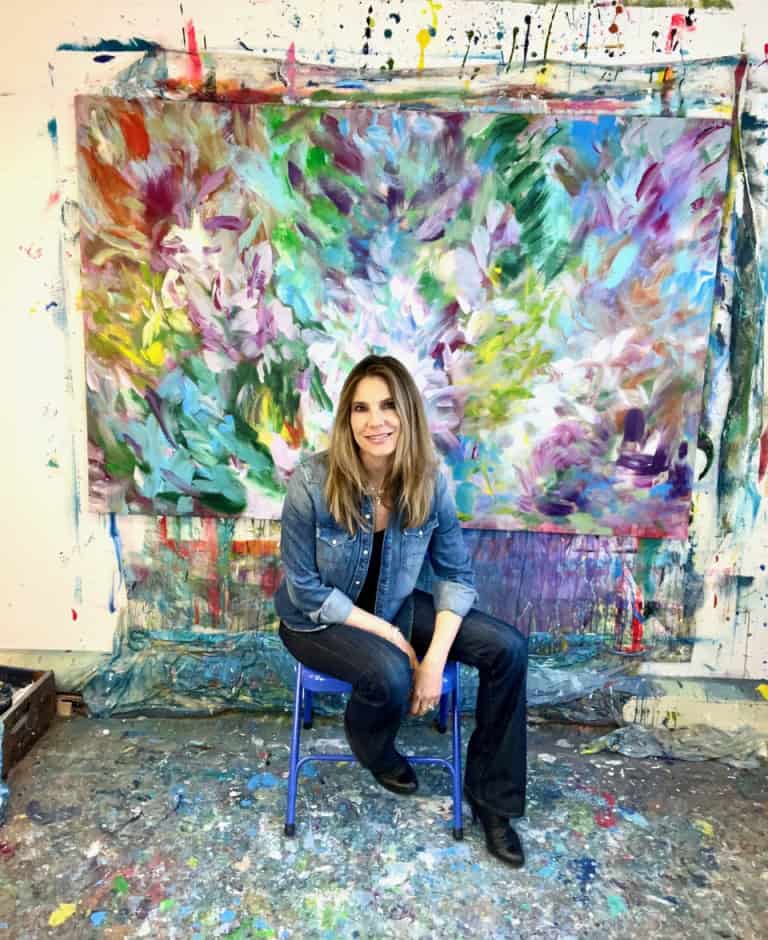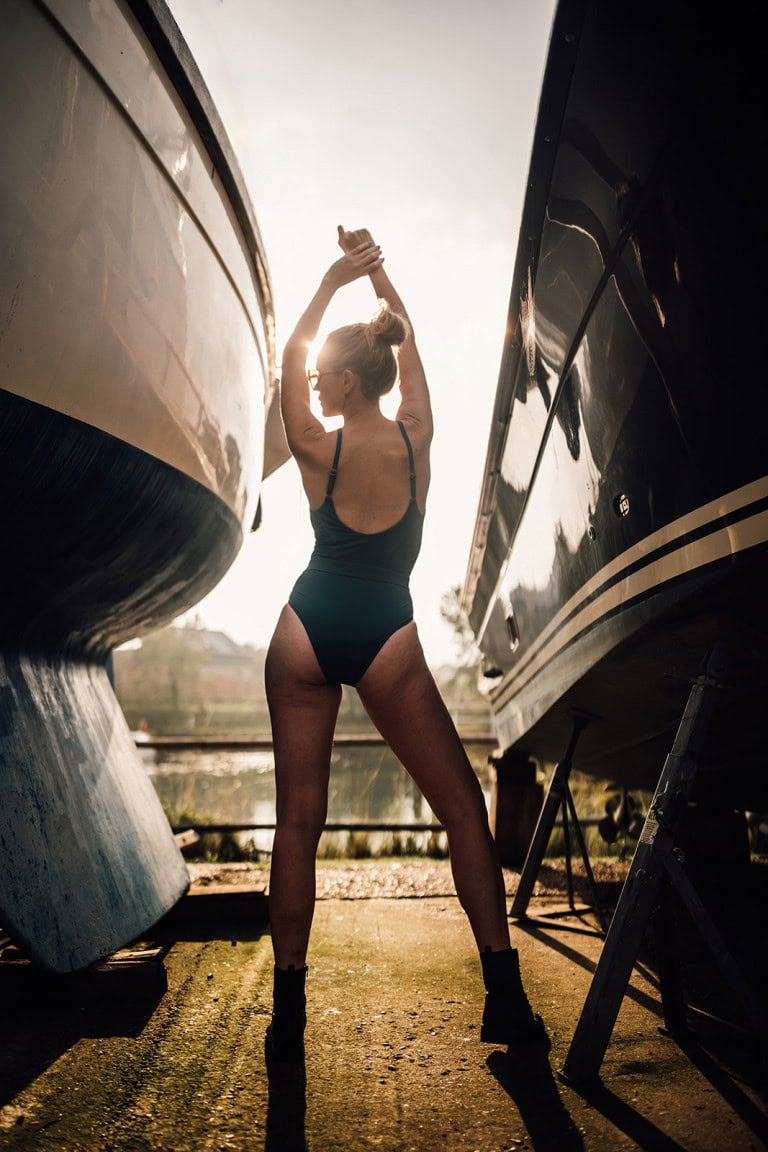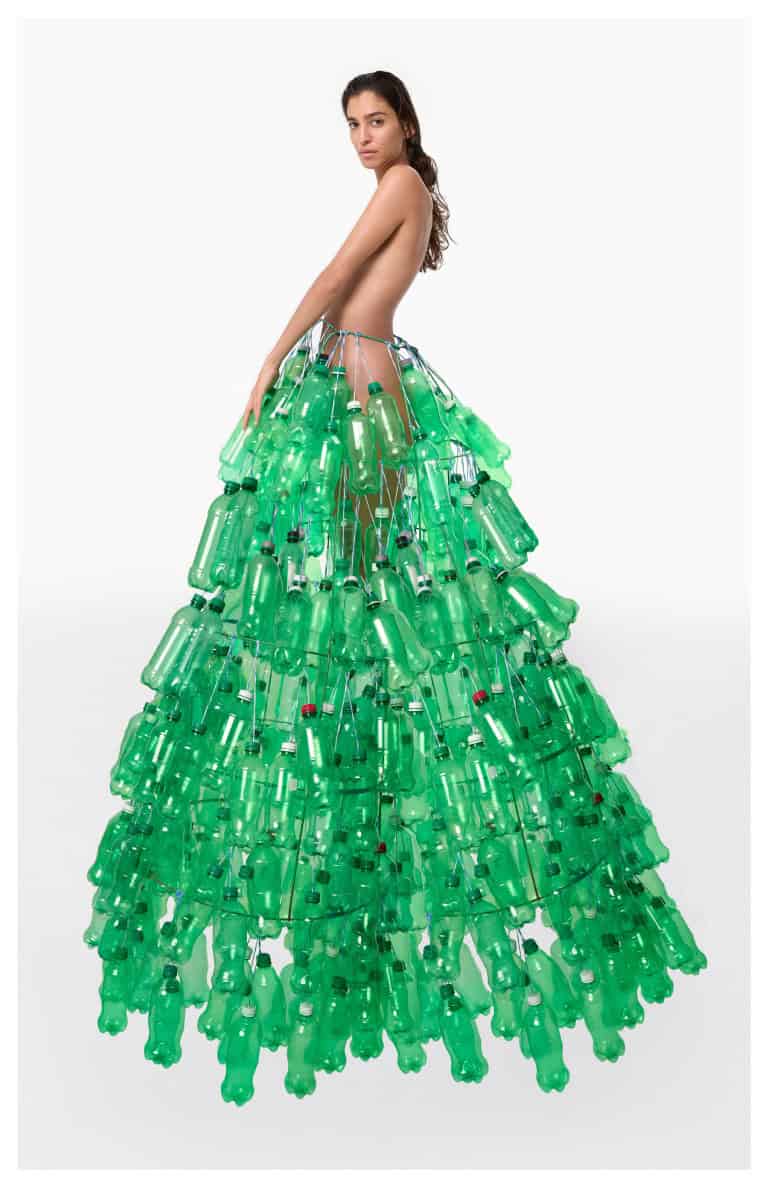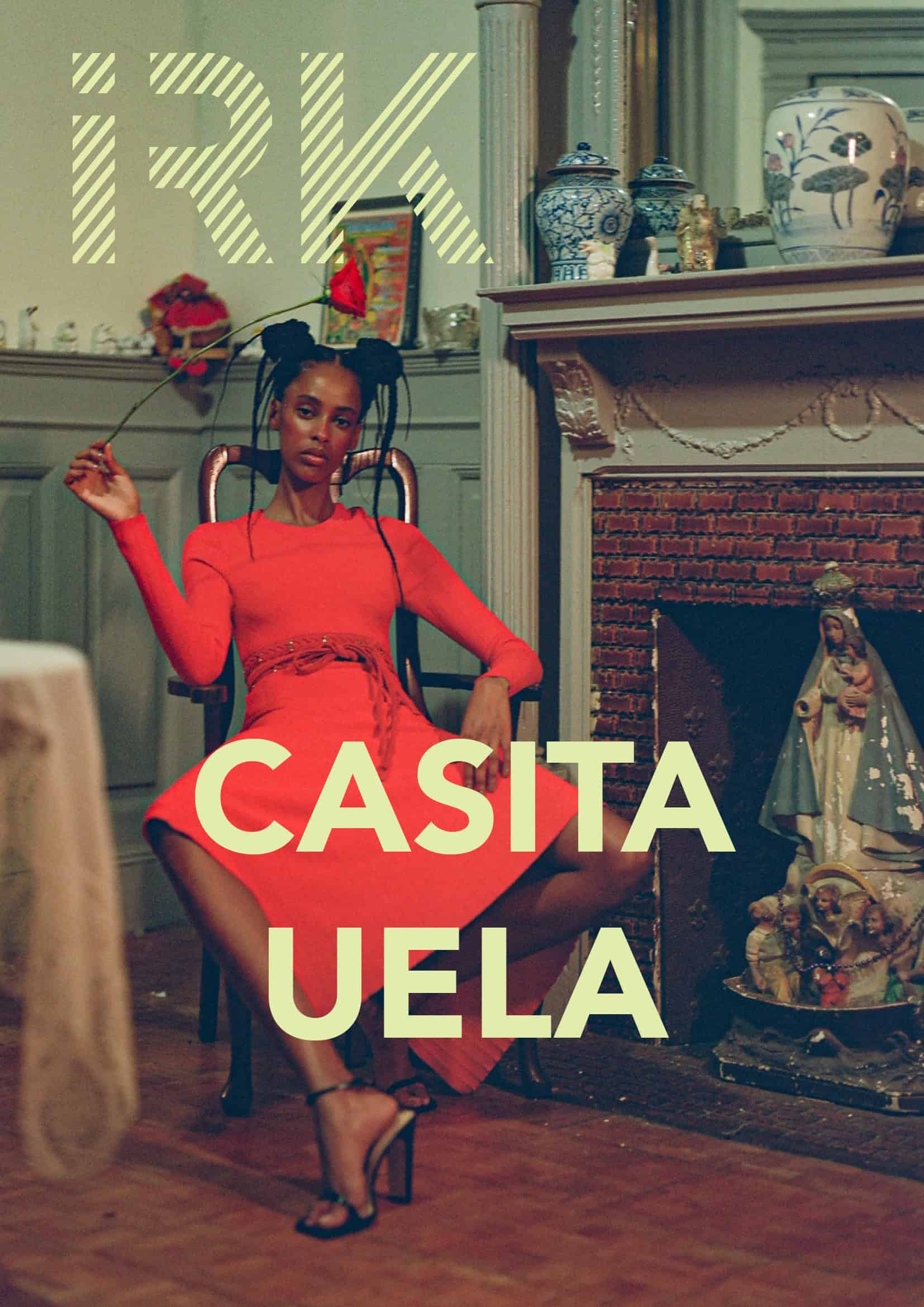
Creative Black Artists Sharing Their Stories: Casita Uela

Dress A.L.C., Belt Maje, Shoes Sergio Rossi
It is more important than ever for creative black artists to have a voice. IRK invited this amazing team of Black creatives to shoot a unique editorial for our readers and to share their thoughts on needed changes, the glass ceiling, and Afro-Latino culture and more.
Photographer: Jose Tutiven @tutes Shot on Kodak camera @kodak
Fashion Edits: Chris Laboy @le_laboy
Makeup: Brittany Whitfield @brittywhitfield of TheOnly @theonly.agency
Hair: Suhlailah Wali @suhstudios
Model: Alba Osman @ablaao
Set Stylist: Marisol Beauchamp @6soley
Producers: Chris Laboy @le_laboy, Brittany Whitfield @brittywhitfield
IRK: There is no better time in fashion to use your voice. As black artists and creatives, how has your voice changed or elevated with the current climate of racial injustice?
Brittany Whitfield (Co-Producer + Makeup Artist): As a light skinned Black woman, I have always tried to pivot the conversation, both imagery and context, to highlight People of Color MORE, specifically darker skinned representation. Mostly because I recognize my privileges that come with my complexion and feel there is a lot greater good I can do by using my voice to add insight to an overlooked and undervalued demographic. This relates to all injustices due to race in all workplaces. I feel fashion and beauty has a lot of catching up to do. But my thoughts and suggestions that fell on deaf ears once upon a time have suddenly perked up, ready to listen due to our current climate.
Chris Laboy (Co-Producer, Art Direction, Fashion Stylist): It makes me conscious of the stories and conversations that still need to be had. I’m constantly reminded how important representation in imagery is.
Alba Sofy (Model): My voice has changed and elevated through these times because I feel that black creatives now have the opportunity to speak and be heard. Although these injustices have been happening for years, we are finally getting the spotlight to make and see the change. I am now more motivated than ever to encourage and represent my fellow black/BIPOC artists with this platform we have finally been given.
Marisol Beauchamp (Set Stylist + Granddaughter of Homeowner): By spreading awareness first. I believe most influence starts “at home“. It’s important that I assure not only the youth of my family, but my community is aware of the severity that racial injustice is indeed a huge problem of our lives today, just as it has been for hundreds of years. I think my style and focus is consistently moving more towards a message of awareness as opposed to just art for art’s sake. There is more of a feeling of responsibility now.
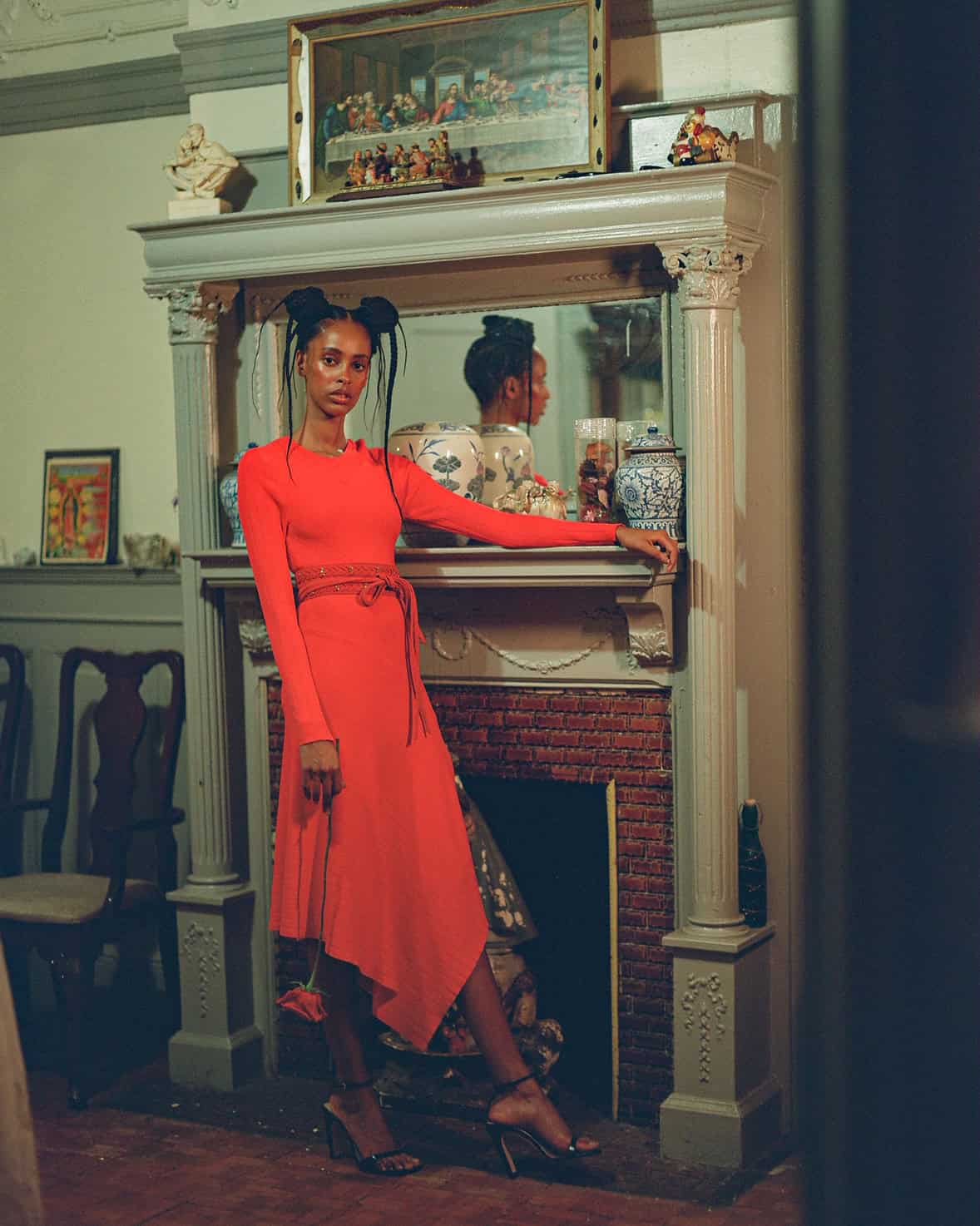
Dress A.L.C., Belt Maje, Shoes Sergio Rossi
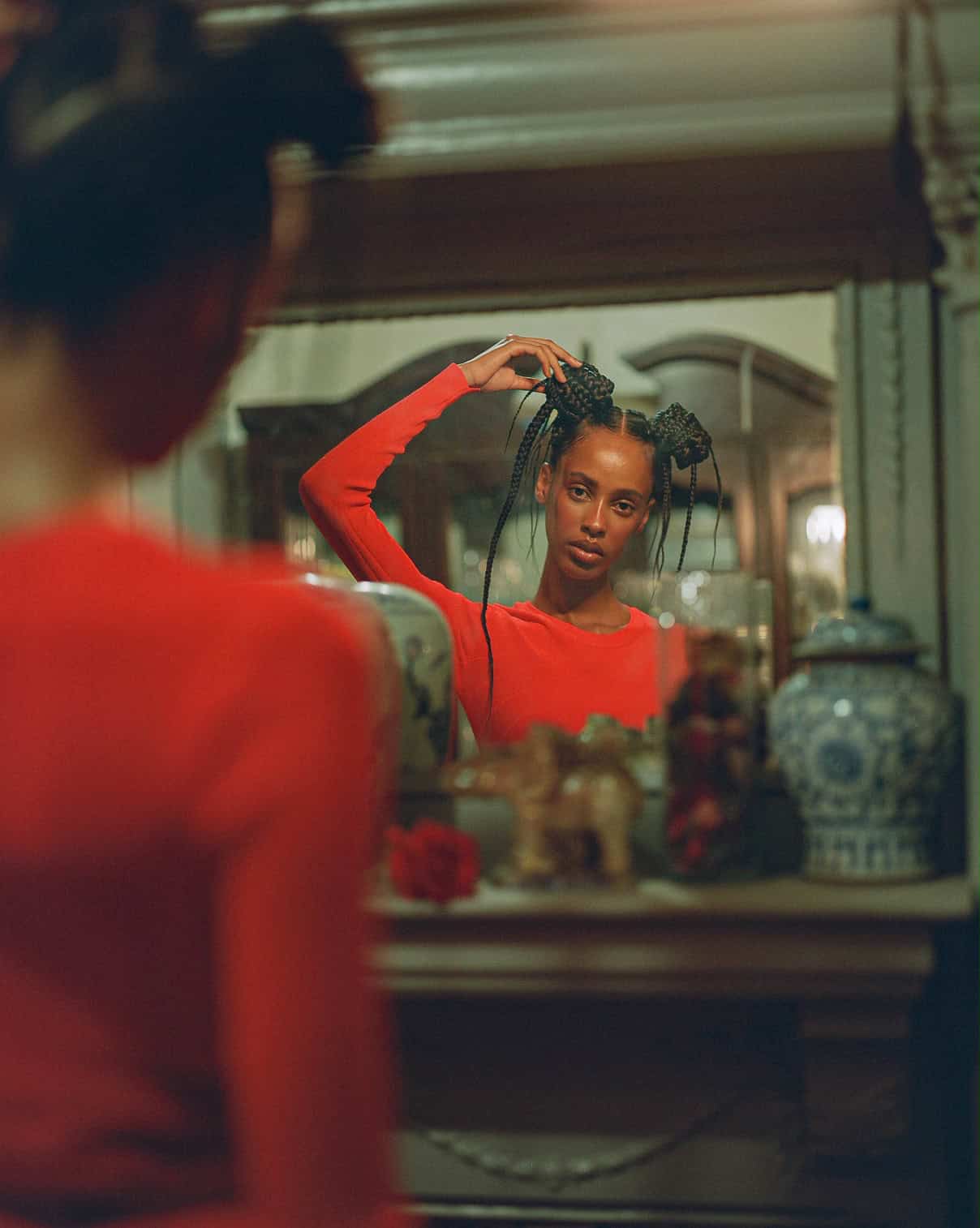
Dress A.L.C., Belt Maje, Shoes Sergio Rossi
IRK: The entire team was made up of people of color. In your experience, are these instances few and far between in the fashion industry?
Brittany Whitfield (Co-Producer + Makeup Artist): The only times I’ve worked on ALL Black and brown sets are when I’ve produced them or were test shoots (aka free / for trade). Keep in mind: I’ve been working as a makeup artist in fashion, TV/FILM, and celebrity for over 10 years. Sounds like quite an issue to me.
Chris Laboy (Co-Producer, Art Direction, Fashion Stylist): In my 10 years of styling I have never worked on set with an all Black team. Period.
Alba Sofy (Model): I would like to see more inclusivity in the industry, as not just a fad or a trend but as something that is here to stay. There needs to be more representation for black artists in all forms of media, in companies and especially in the head office of these companies; to ensure genuine and long lasting change. Being black is not a trend! But a beautiful thing that the youth of our generation and generations to come deserve to realize. I would also like to see more opportunities for black artists / designers to receive the funding/grants/scholarships needed to help excel their businesses.
Marisol Beauchamp (Set Stylist + Granddaughter of Homeowner): Yes, it’s not happening enough, but thankfully, it’s happening more than it used to. I think that’s the direction we are heading in. We used to have to depend on the people who had the money, the people who had the connections, the people who had the studios and materials. But as People of Color have been steadily moving forward, not just in fashion, but in other forms of media, like film, television, music and so on, gaining control over the raw materials and other fundamentals, we can build our teams with people who share our vision and who share similar stories with us.
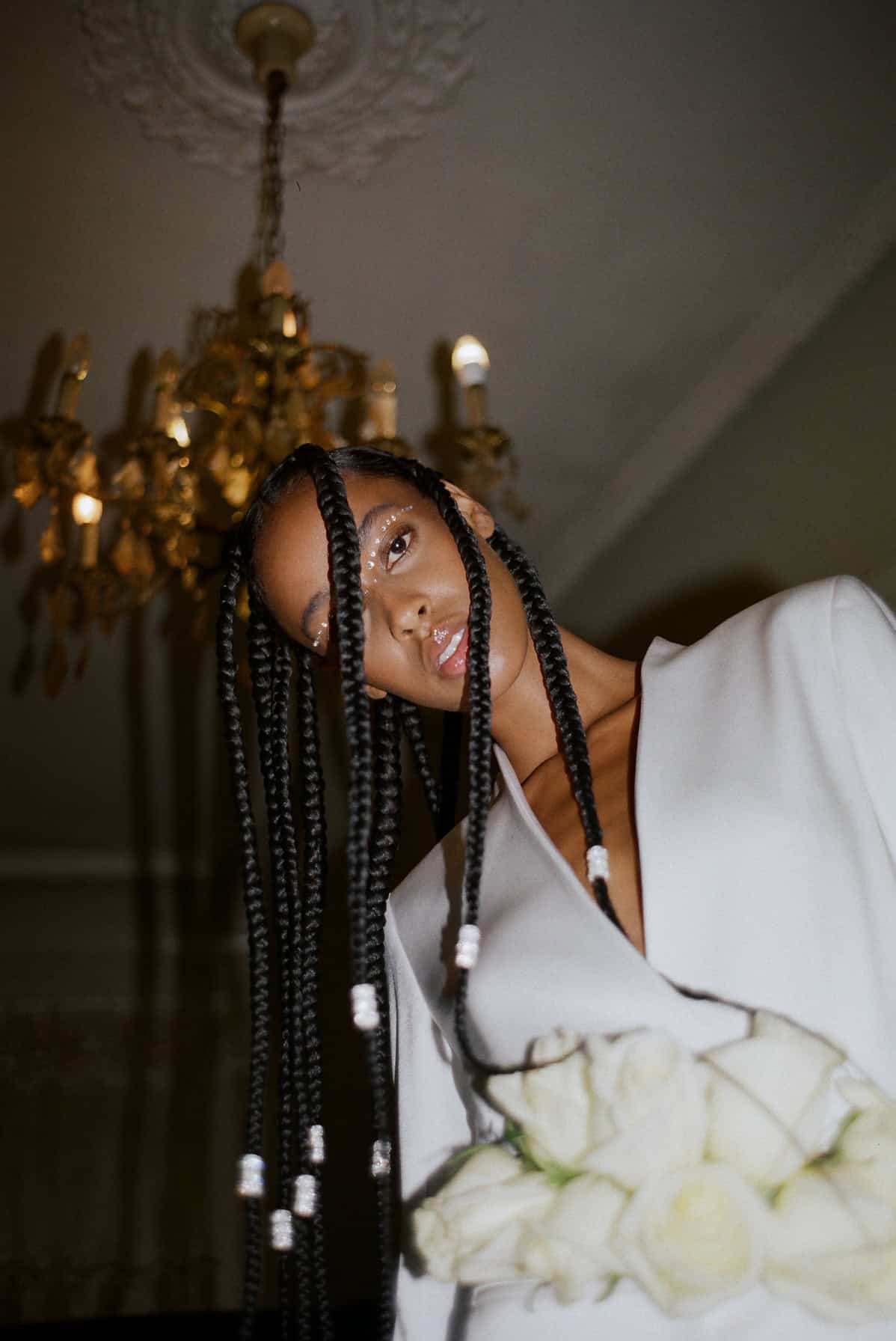
White suit Alice&Olivia, Shoes Sergio Rossi
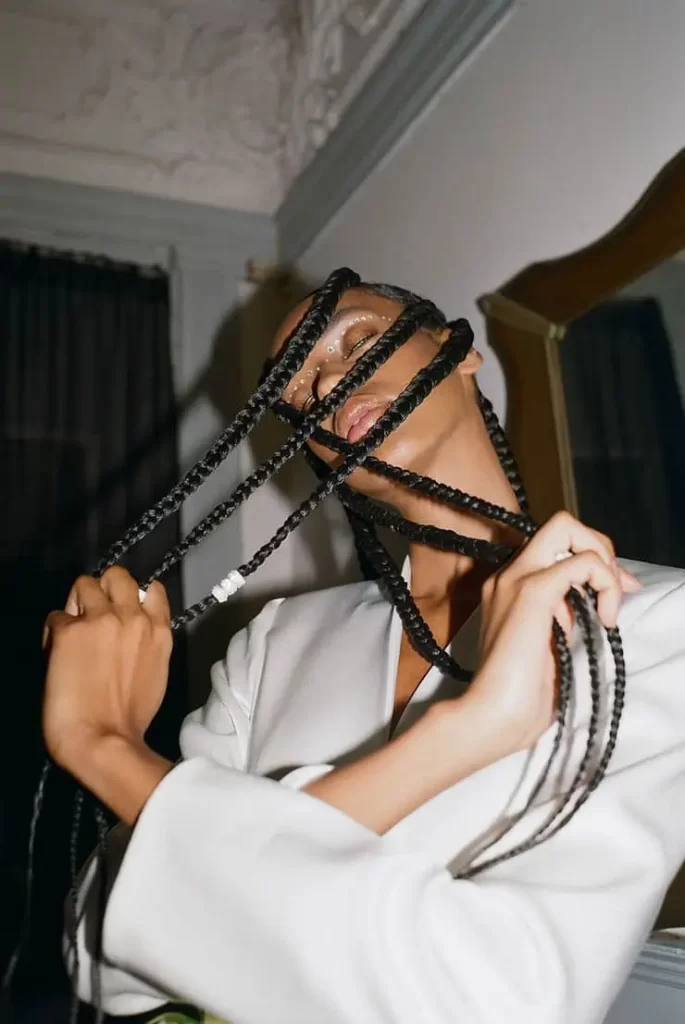
IRK: What types of changes would you like to see in the fashion industry moving forward?
Brittany Whitfield (Co-Producer + Makeup Artist): For starters, I would like to see Black and brown people to be viewed equally, period. I don’t want to type in “black girl, smokey eye” on Pinterest anymore. I don’t want to type “false lashes” into Google (a beauty element unrelated to complexion) and see only fair / predominantly white faces. I want executive teams and crews to be Black and brown as well and not just on the runway as a damage control tactic or as PA’s grabbing coffee.
I also want to give respect to and normalize People of Color in creative fields that are parents, who are dedicated to their passions while accepting ridiculous payment terms (paid well after a project or service has been delivered), late night call sheets, last-minute confirmations, etc. This is an important shift that NEEDS to be recognized and addressed in fashion because sadly the Black and brown creatives / freelancers of the world are taking risks unbeknownst to many to fulfill a dream they were probably taught was unattainable. All while being muted or blacklisted when using their voice in defense of their struggles.
Chris Laboy (Co-Producer, Art Direction, Fashion Stylist): The celebration of representation without an aftertaste of exploitation.
Alba Sofy (Model): Now is the best time for this Afro-Latino story because due to the uproar from the Black Lives Matter movement, the world now sees the need for BIPOC representation. There has been a noticeable push in the fashion industry for inclusivity and as a person of color I am proud to represent the beauty in our people and cultures.
Marisol Beauchamp (Set Stylist + Granddaughter of Homeowner): I believe fashion changes everyday, by the minute. However I do miss raw authenticity. Most brand items are the same to the eye these days. Nothing stands out. I hope to see bold shifts coming from different viewpoints. I want to see styles that tell a story, without looking like it’s trying too hard.
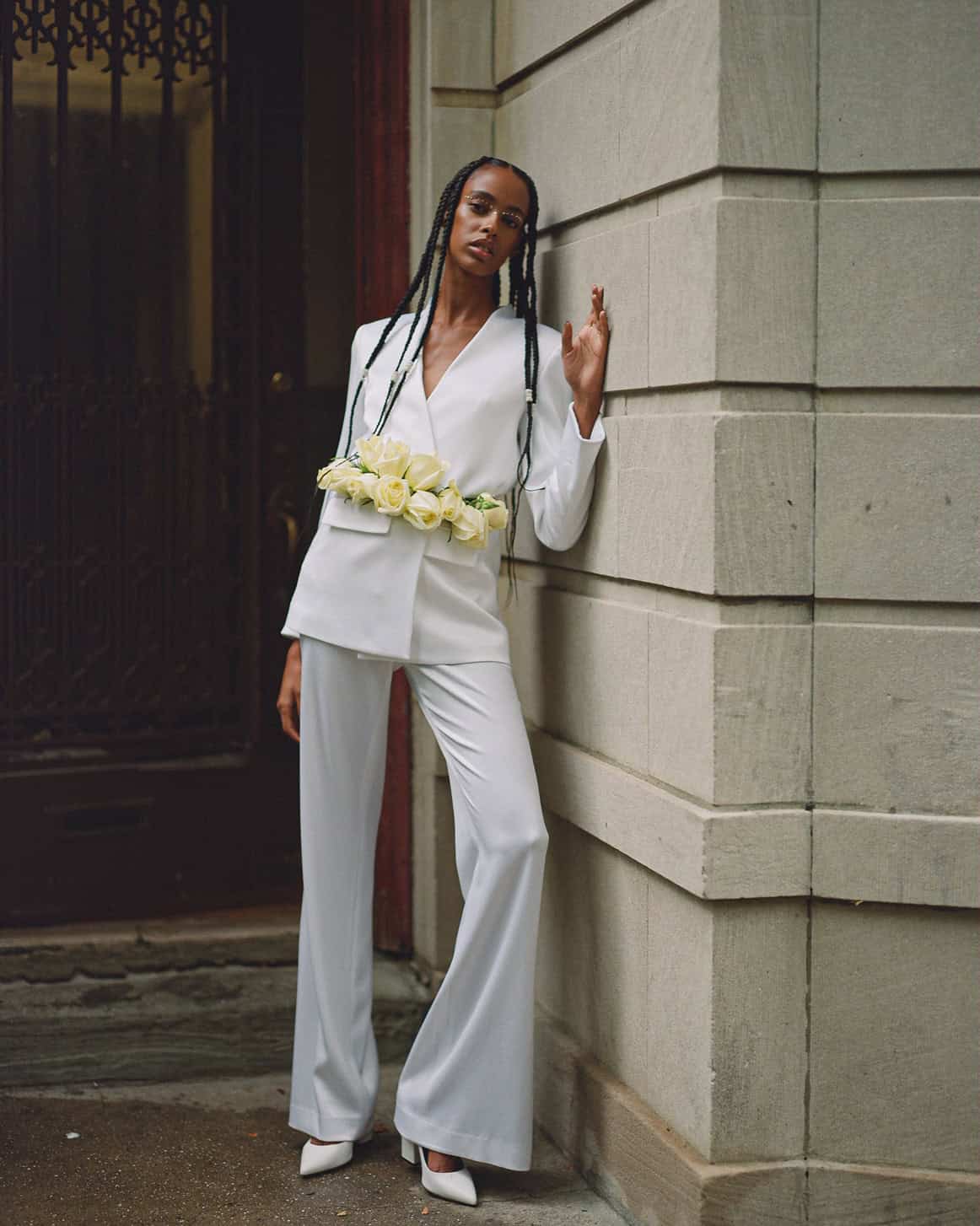
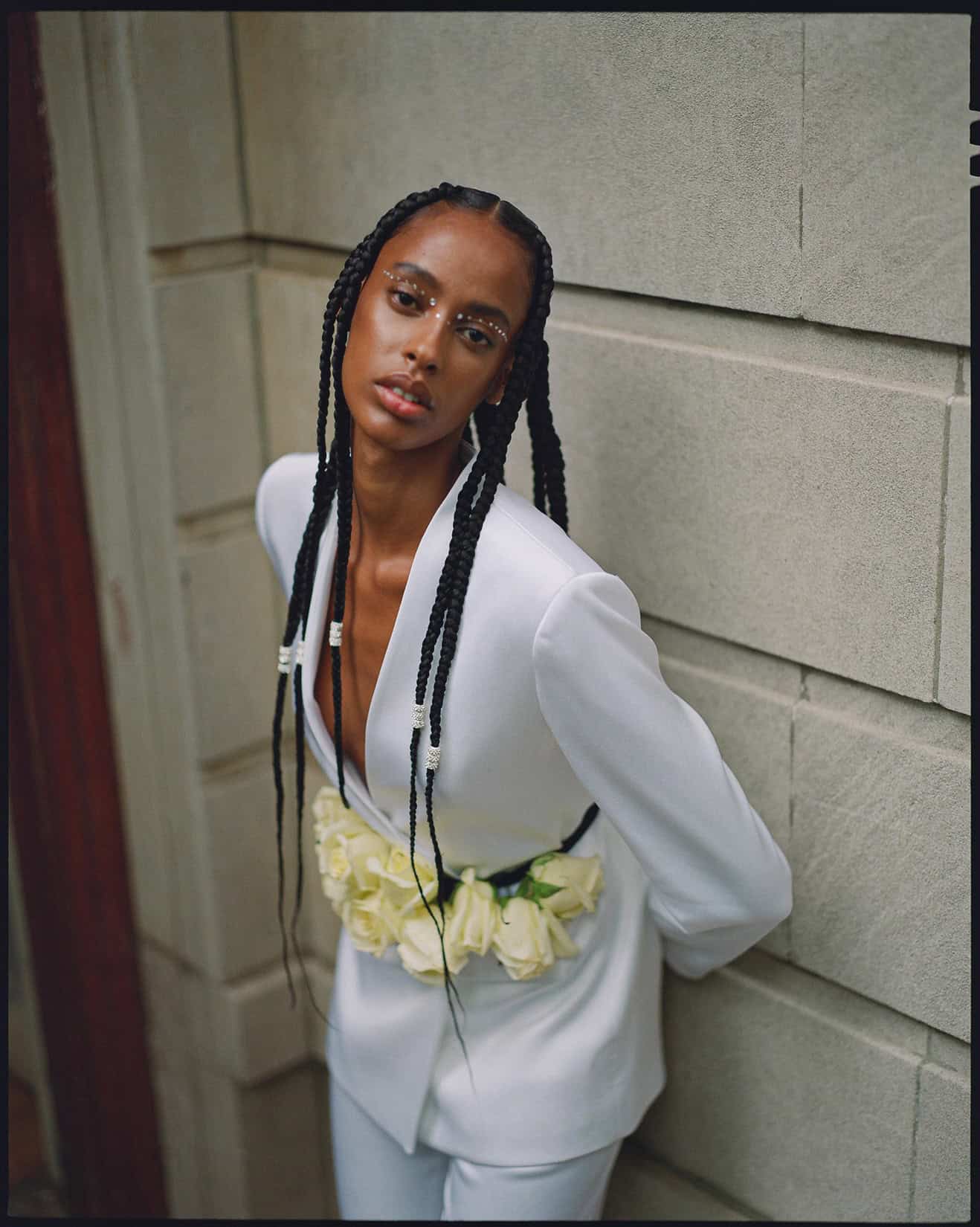
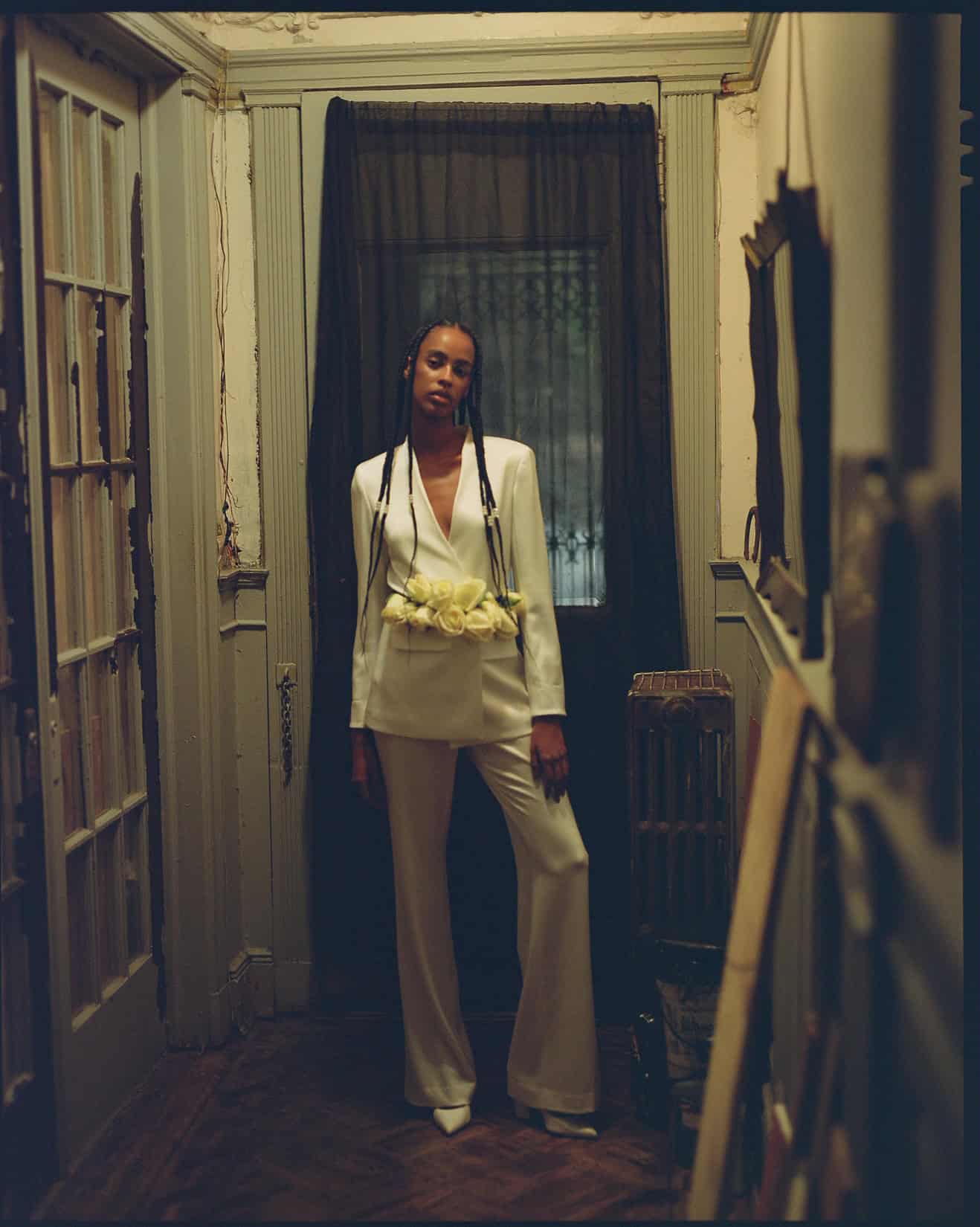
IRK: Have you experienced some form of ‘the glass ceiling’ as black creatives? If so, what was this experience and what advice can you give to those experiencing the same thing?
Brittany Whitfield (Co-Producer + Makeup Artist): Absolutely! I’ve offered my field and market research to so many brands to help with product development, offered my talents for artistry trainings, marketing advice on how to not EXPLOIT inclusion but to celebrate it in campaigns, etc. and they’ve ALWAYS fallen on deaf ears and been DISMISSED. As an artist in the field, specifically in beauty, I share and absorb some of my clients most intimate moments, their troubles, concerns, etc. all while knowing what products they use in their cabinets, knowing what speaks to them, and being capable of knowing how to style-step to all as individuals. BLACK AND BROWN WOMEN / MEN / PEOPLE BUY MAKEUP! An entire population should NOT be treated as “a niche market.” Not when we contribute so much to pop culture as a whole. My advice to other beauty professionals who are IGNORED when trying to break through the glass ceilings in their career in whatever capacity is to CREATE YOUR OWN! If they won’t listen, MAKE them listen. It sure as hell is worked for Rihanna.
Chris Laboy (Co-Producer, Art Direction, Fashion Stylist): We have all felt the nuances of racism, but you cannot let someone’s fear and ignorance distract you from the relationship and development of your craft. Hire Black.
Marisol Beauchamp (Set Stylist + Granddaughter of Homeowner): Personally, not in any significant way. What I have noticed most however, is that just in everyday conversation, women as the second class person in the art scene always seems to be the default attitude. It comes so natural to people, sometimes even other women, that they don’t know how oppressive their speech is. My advice to anyone experiencing the same is; Speak Up and Speak Loud. You will always be your own, best advocate.
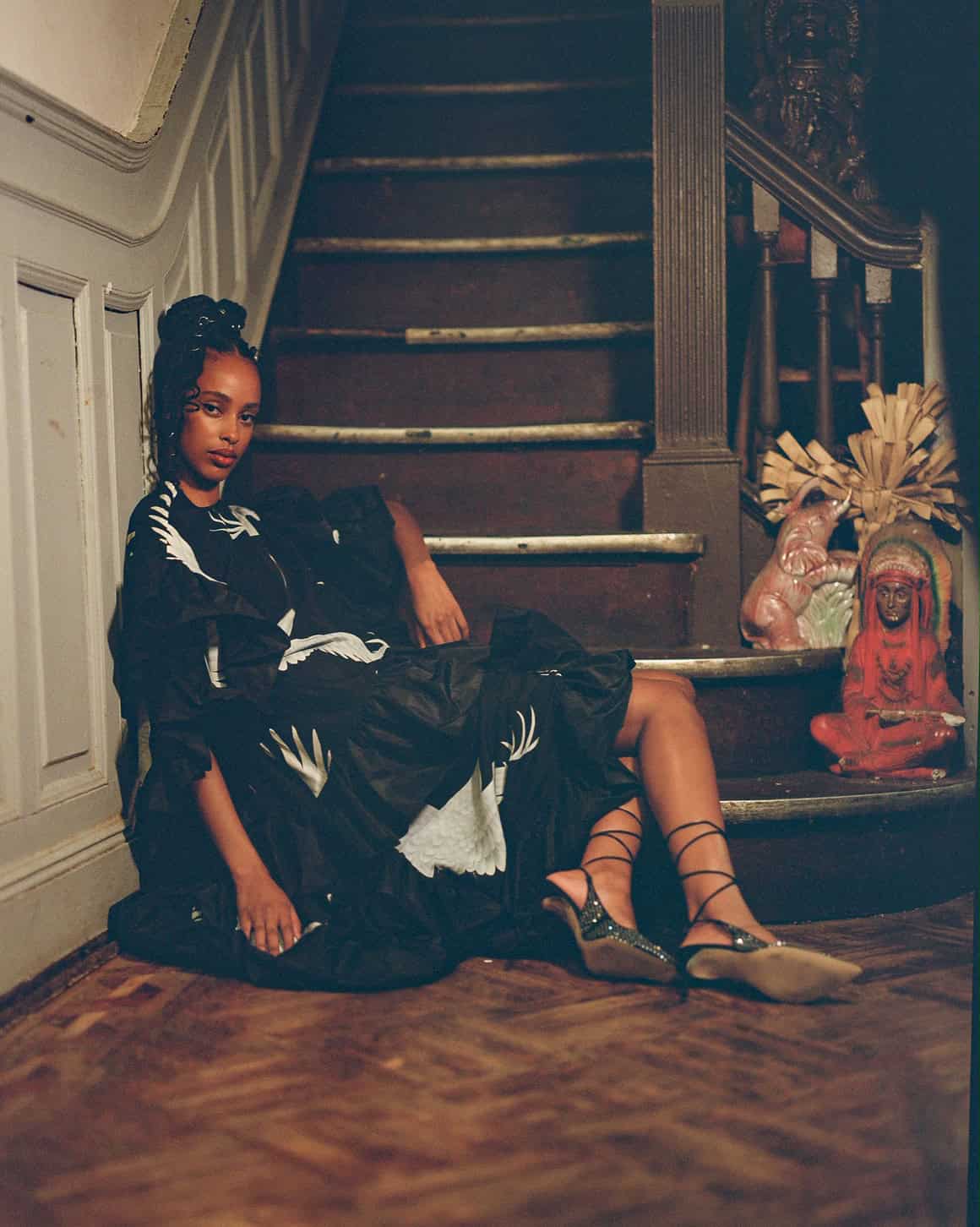
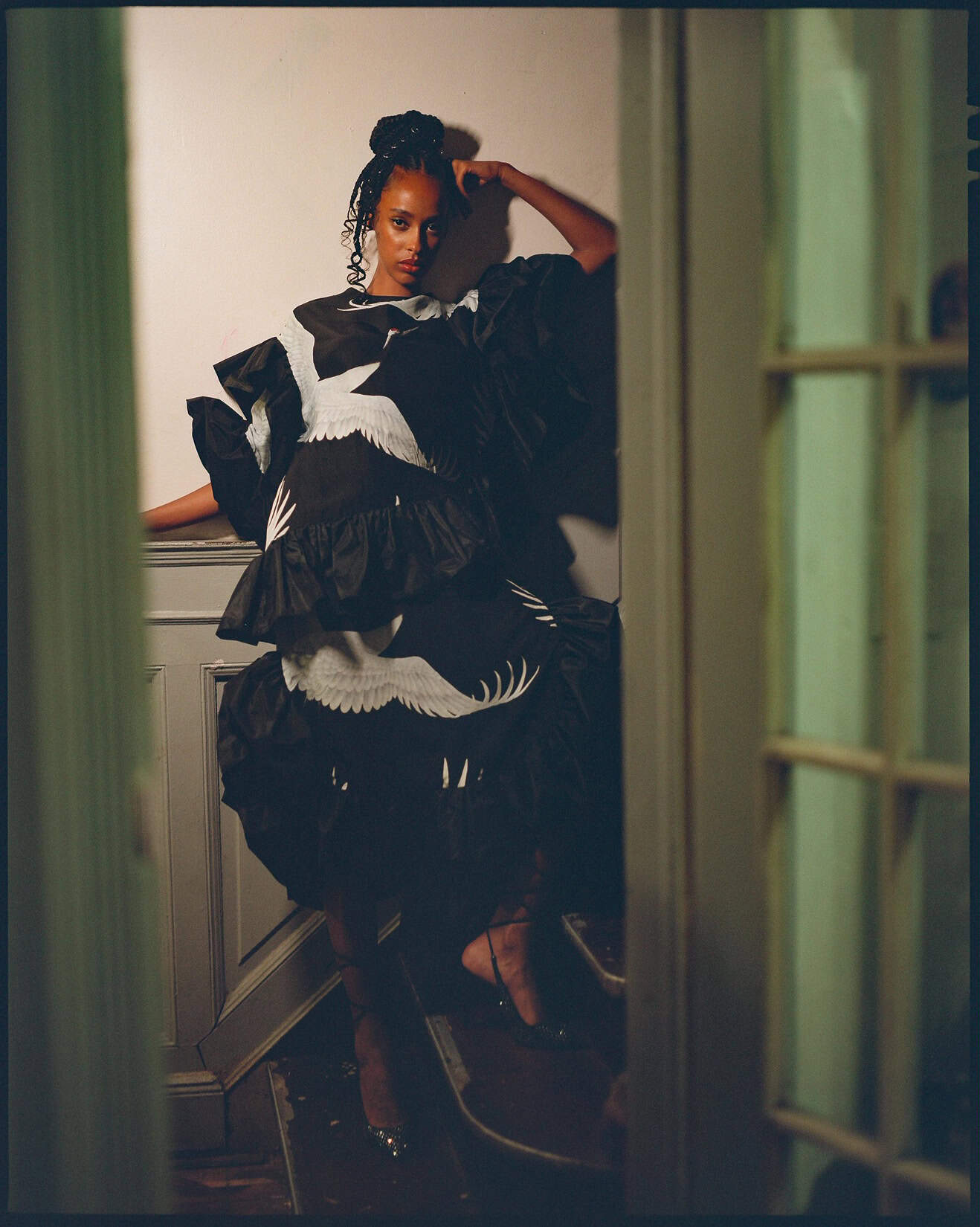
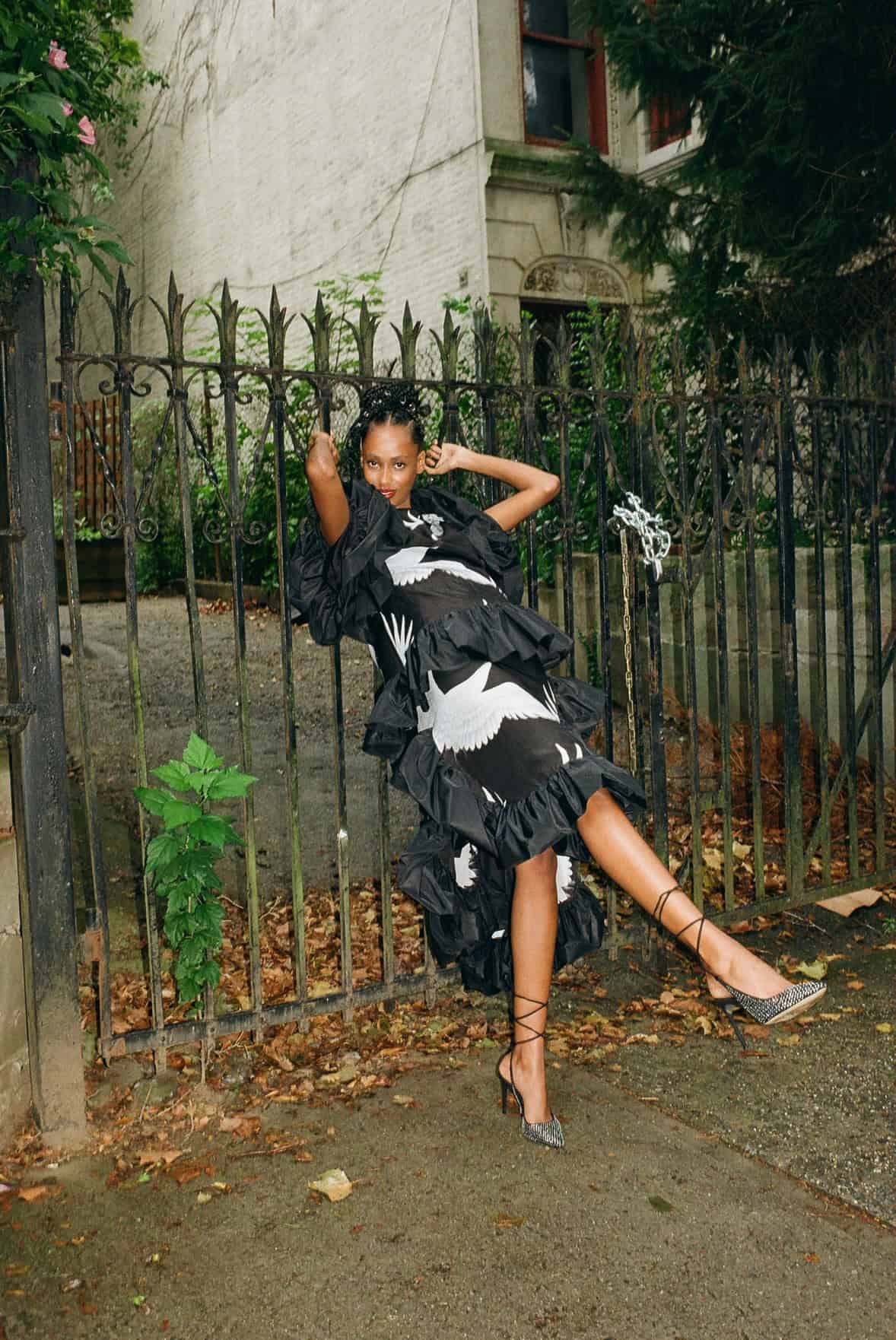
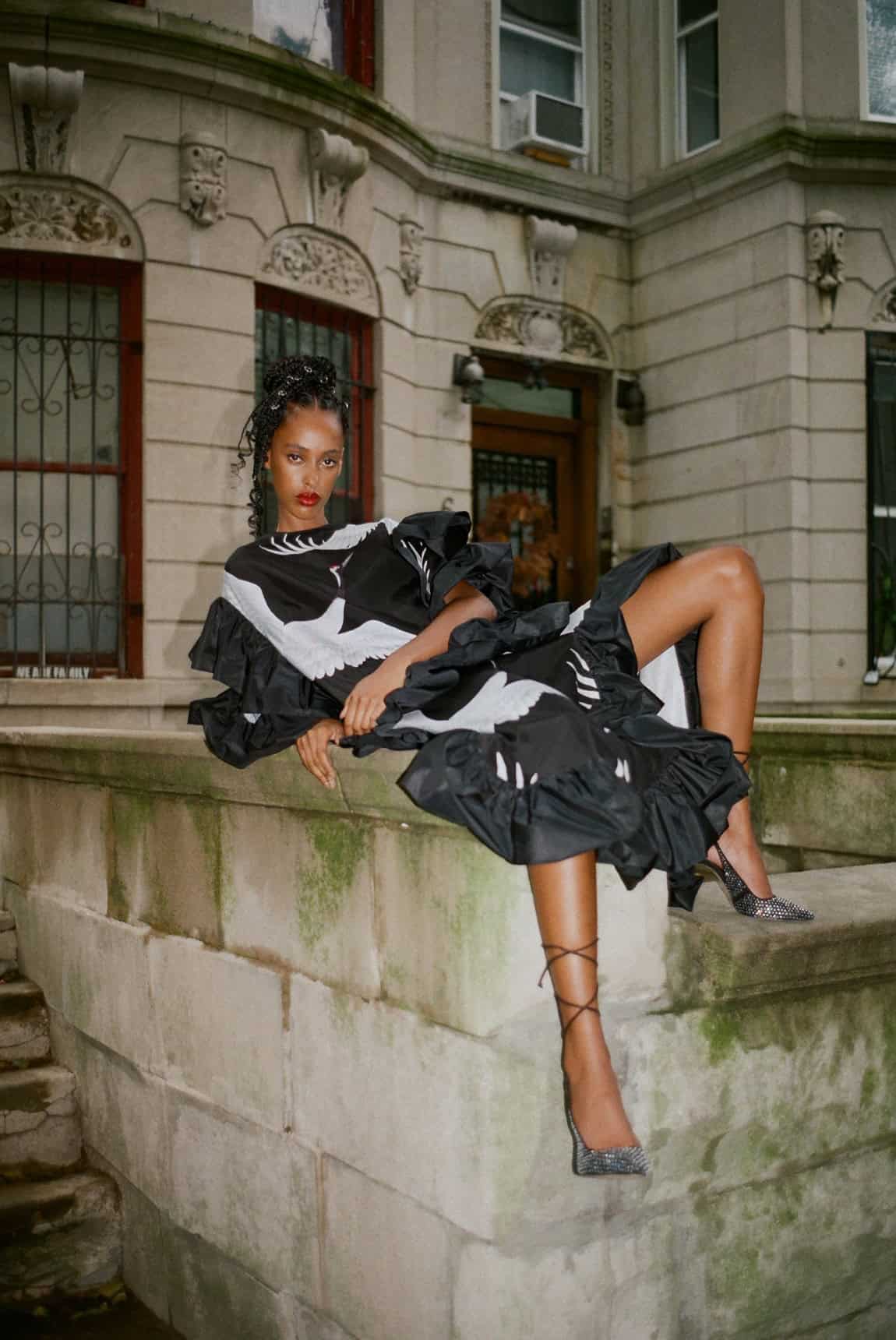
IRK: Why is now the best and most relevant time to release a fashion story of Afro-Latin culture?
Brittany Whitfield (Co-Producer + Makeup Artist): I think it’s extremely important now, while the world is listening, for the Latin community to be REMINDED of their roots. I think somehow, somewhere the lines get crossed because of the correlation and derivation of the Spanish language (Spain / Europe).
Chris Laboy (Co-Producer, Art Direction, Fashion Stylist): We are actually late. We are in the middle of a movement that is always moving. We are in a time of reclaiming our voices and telling our stories, dilution free.
Marisol Beauchamp (Set Stylist + Granddaughter of Homeowner): Right now, this country is having a conversation and a reckoning on race unlike anything since the Civil Rights movement in the 60’s. We are all re-defining ourselves and not only our place in history, but our role and responsibility to the future. Sometimes, the notion of American Exceptionalism spills into places where it doesn’t really belong, and the Afro-Latina’s story is told as if it’s not part of the story of all Afro-descendants in the West.
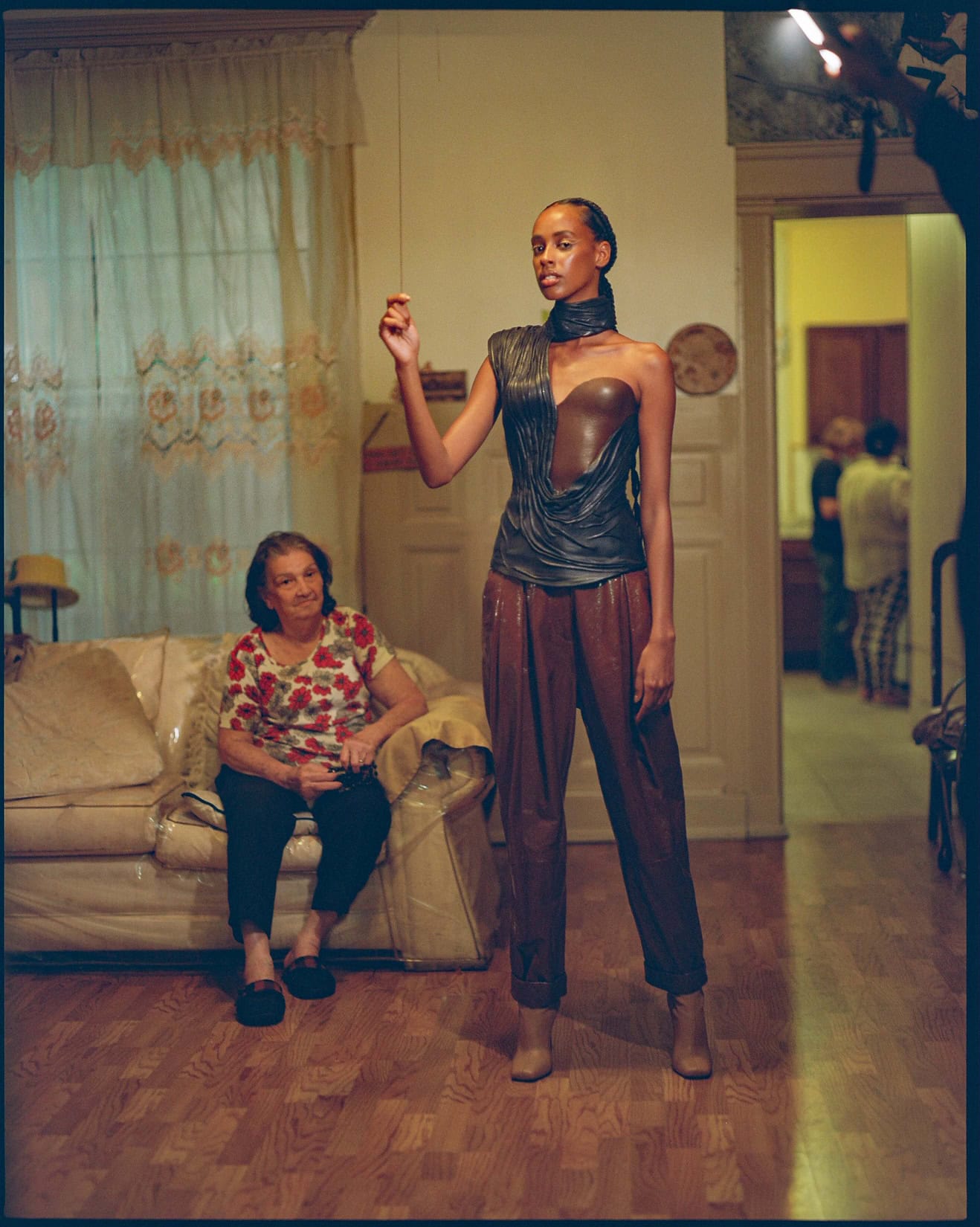
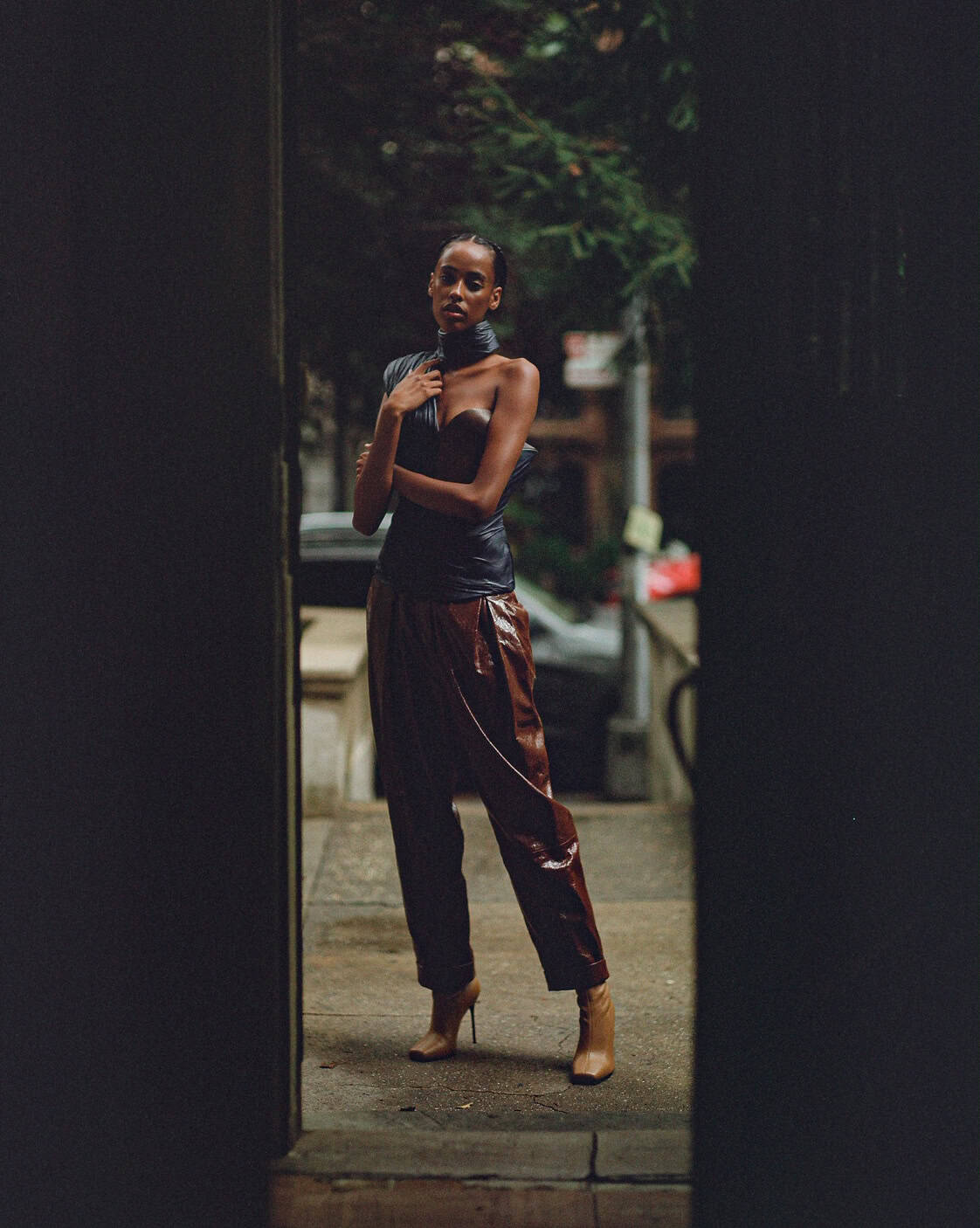
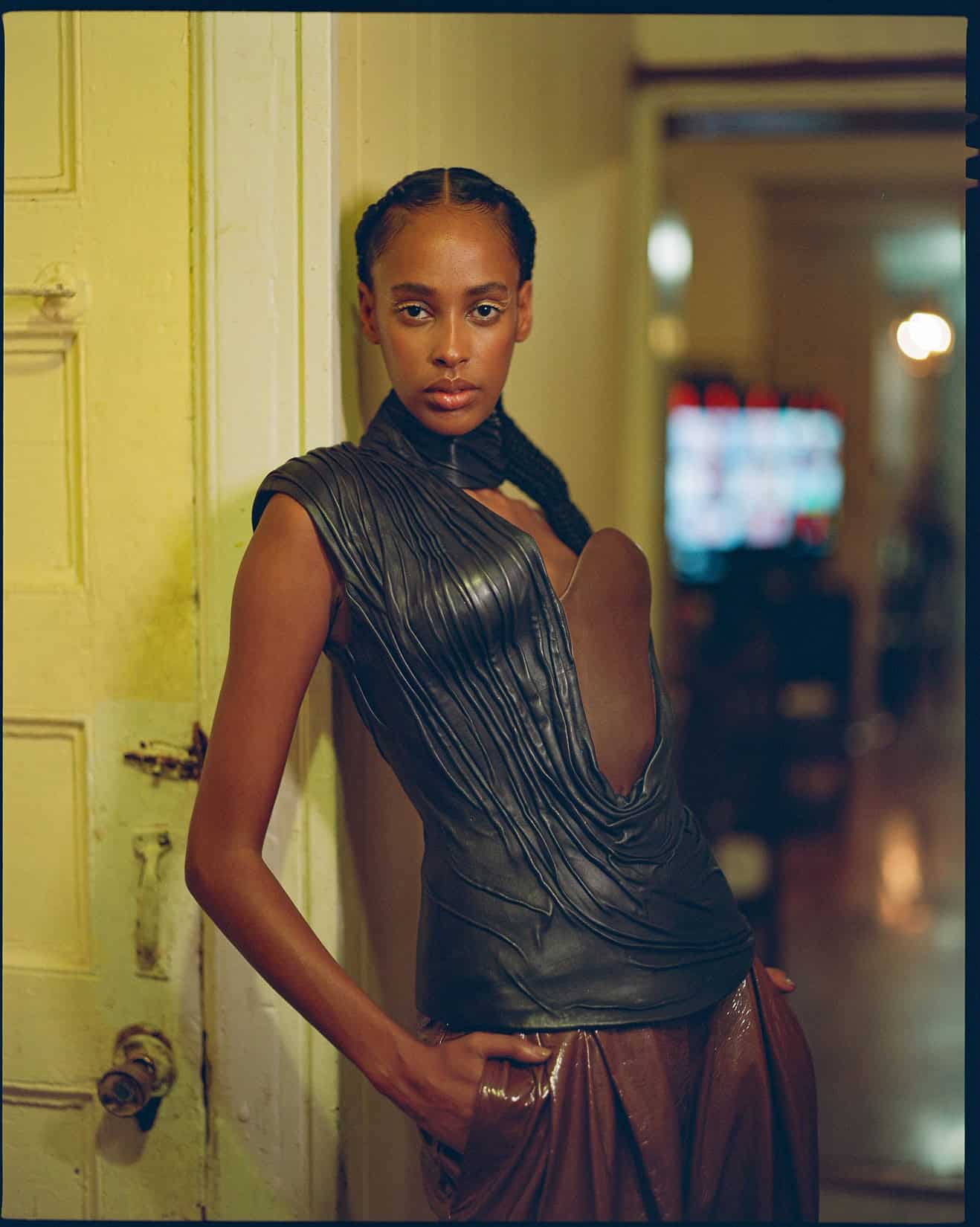
IRK: As a visual storytelling of culture, what do you hope that viewers take away from this collection of imagery?
Brittany Whitfield (Co-Producer + Makeup Artist): For me I think lots of people can relate to what the landmark, “Grandma’s House,” feels like and means to them, no matter their race. But, I think it’s important to showcase a household with intense dynamic character and familiarity to those that are under-represented, especially as a set. This was Marisol’s GRANDMA’S HOME. The interiors we were raised in aren’t always glossy and polished with modern fixtures and hardware. We have peeling paint, porcelain figurines, untucked wires, plastic on our couches, and you know what? The levels of truth and humbling beauty we’re exposing to the world with this imagery is what makes us, US.
Chris Laboy (Co-Producer, Art Direction, Fashion Stylist): I hope they understand that this body of work is a love letter to all Women Of Color. I see you.
Alba Sofy (Model): As a visual storyteller of culture, what I hope viewers takeaway is equal representation of humanity. Showing a unity as well.
Marisol Beauchamp (Set Stylist + Granddaughter of Homeowner): Casita Abuela ~ visually, a trip through a home deep rooted in Puerto Rican heritage. Spiritually grounded in family traditions. Embracing the culture our ancestors and our elders passed on to us is important. If you know how to look, there can be so much beauty in the ordinary and familiar. My grandma’s house would look familiar to almost 99% of Latinos, and those little details tell our story. I want the viewer to not be afraid to see the story told by the small things in their surroundings. The sights and smells of their childhood, the good, the bad, the absolutely beautiful and the ugly that makes them who they are today.
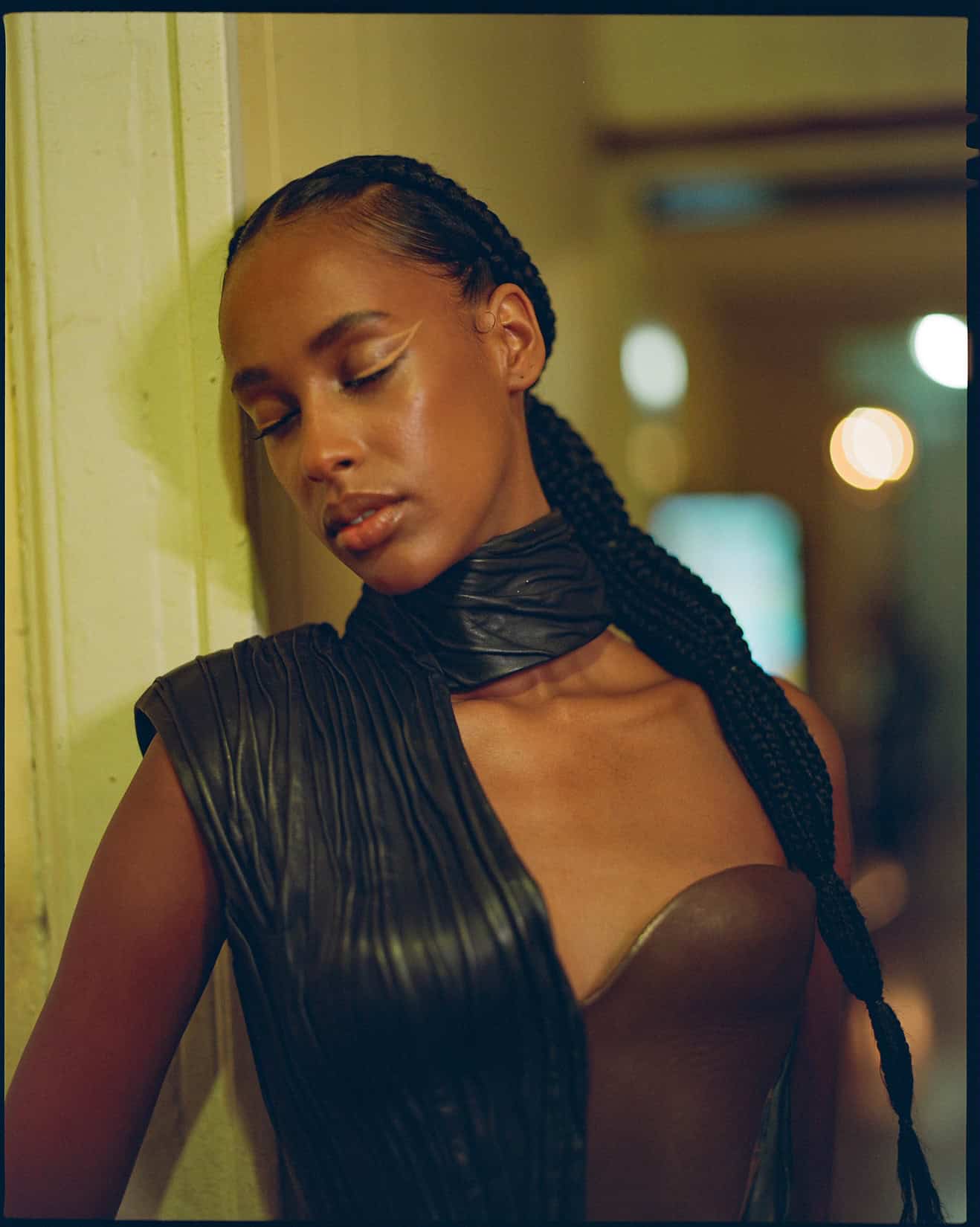
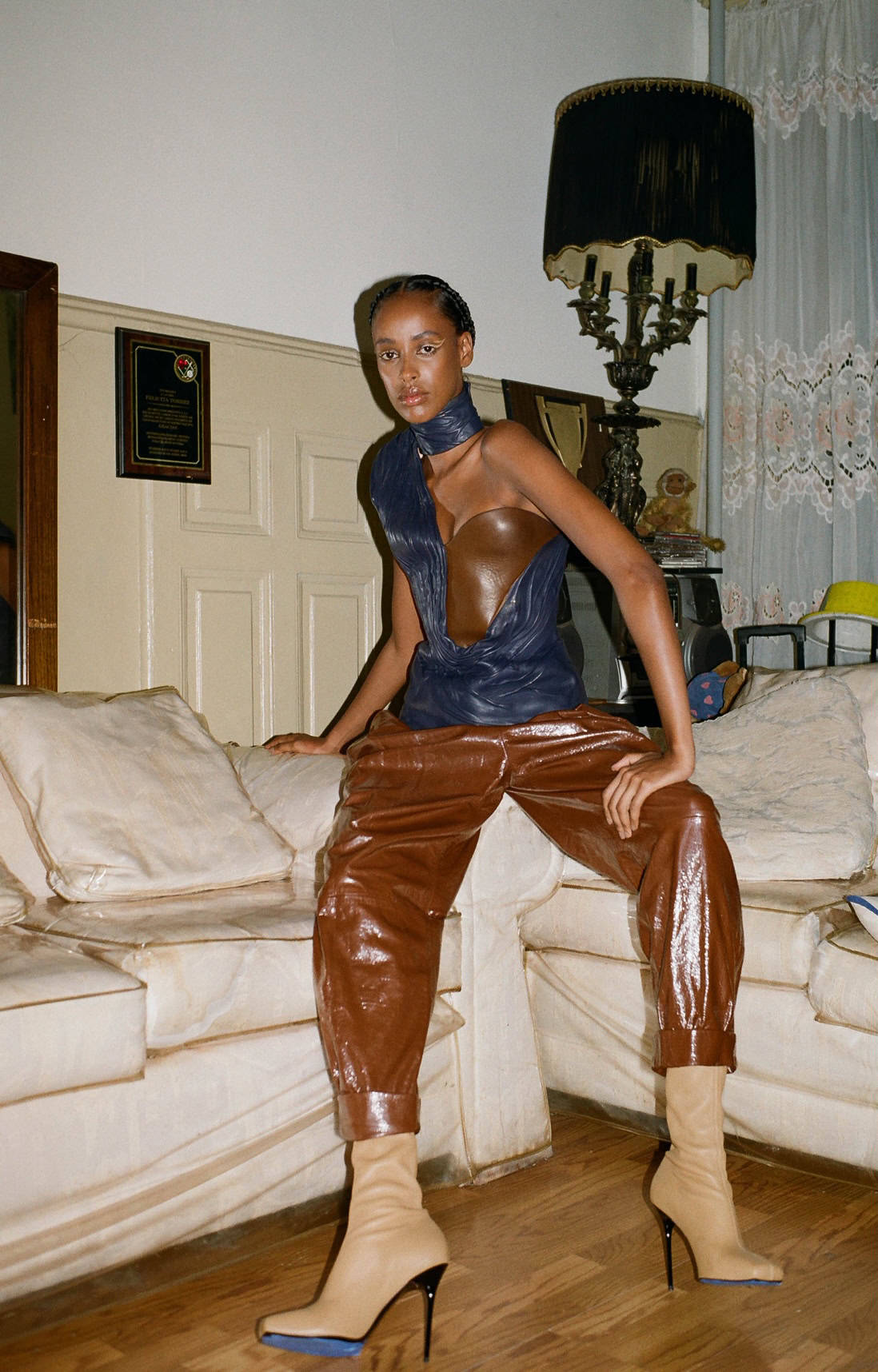
Share this post
Cannon is our Editor-At-Large since August 2016. He grew up in New York City and was influenced at an early age by rock and fashion. He is an award-winning celebrity stylist, fashion editor and creative director who has styled many of his favorite musicians including Annie Lennox, Cyndi Lauper, Jimmy Page and Shirley Manson. His wit, charisma, and style have made him a trusted and sought-after stylist by Hollywood legends such as Liza Minnelli, Willem Dafoe, Dennis Hopper, and Glenn Close.
Cannon has also worked with some of today's hottest celebrities, including Diane Kruger, Angelina Jolie, Matt Damon, Penn Badgley and Kellan Lutz. He was the first stylist to get Barbra Walters into a pair of jeans for a photo shoot, and had the opportunity to dress Michael Jackson as the KING OF POP for MTV. In addition, Cannon also founded PLUMA- a luxury costume jewelry collection made exclusively in Italy that was recently featured on the cover of Italian Vogue. As a result of working with great musicians and celebrities, Cannon has contributed to multiple publications including: Rolling Stone, Vogue, Time, Entertainment Weekly, Vanity Fair and W. He has styled large casts for every network including: Lost, Sopranos, The View, Project Runway, Kelly, The Today Show, Top Chef, and The Office. Cannon's expertise in fashion also has lent itself to him being in front of the camera as a style expert, with television appearances on E!, Style, VH1, CBS, NBC, ABC, TLC, and Bravo. Cannon has been an on-air spokesperson for TJ Maxx, Burlington Coat Factory, Chapstick, Pantene, Dove, and Peanuts/Snoopy Worldwide. He has also been profiled in American, German and Japanese publications. In addition, Cannon was instrumental in organizing an inaugural panel discussing fashion and film for MEIFF in which he also served as a participant alongside Jason Wu and Kathryn Neale Shaffer, contributing editor at American Vogue.
Whether it's obtaining real museum pieces for a Discovery Channel commercial or recreating 50 unique culturally observant costumes for the worldwide launch of the National Geographic Channel, Cannon's respect for authenticity and his gift of problem solving has left lasting impressions on everyone he has worked with. Additional commercial work also includes Saks Fifth Avenue, Target, Sony Music, RCA, Bravo Network, Sprint, Bergdorf Goodman, and Neiman Marcus.
Cannon has styled fashion shows for Jason Wu and the Life Ball in Vienna, Austria, starring THE BLONDS, which is the largest AIDS benefit runway show in the world, that year hosted by President Bill Clinton and Eva Longoria. Other fashion shows include Snoopy in Fashion, Joanna Mastrioni to name a few. He has also styled shows for Safilo and their licensed brands, which include Gucci, Christian Dior, Emporio Armani, Ralph Lauren, Dior Homme, Max Mara, Marc Jacobs, Marc by Marc Jacobs, Stella McCartney, Banana Republic, Tommy Hilfiger.
Read Next

